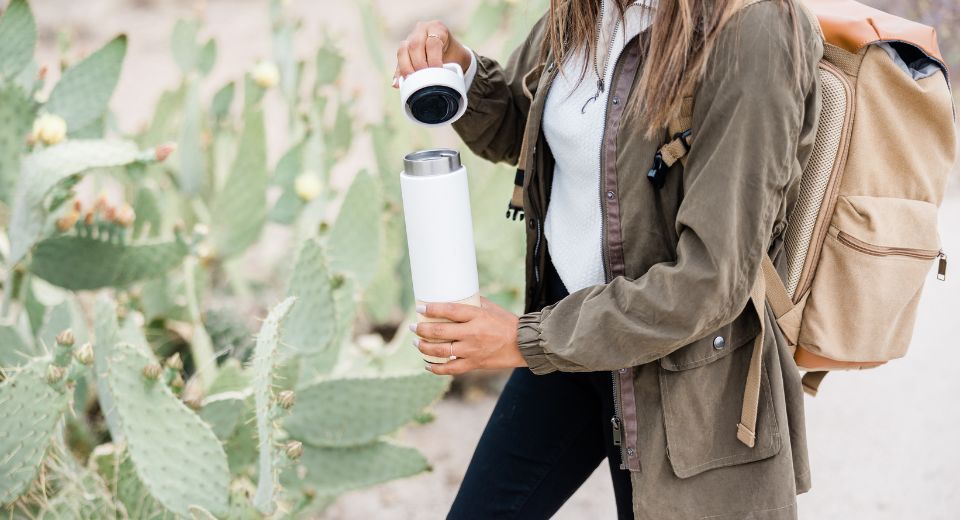Author: Kenneth Vanderbeck, PA-C
Hydration is one of the most important parts of a healthy lifestyle. It can impact your body in a number of ways including your overall health, sleep, and energy levels. Unfortunately, chronic dehydration is incredibly common. The good news for you is that dehydration is also easily preventable. A lot of people with low energy look to vitamins, supplements and caffeine to feel better, however ensuring adequate hydration can make a big difference and provide immediate relief.
Roughly 50%-60% of your body weight is water. We are constantly losing water through sweating, urine, breathing and energy production in the body. Most people have been told they need to drink 6-8 glasses of water a day to stay hydrated. However, the amount of water needed varies greatly depending on body type, activity, and medical history. If you are low on fluids your body will not work as efficiently and shunt water to the essential organs such as your heart and brain. As a result, your skin, muscles and overall energy will suffer. Consuming an adequate amount of water through fluids and foods with a high water content can prevent this.
5 Tips for Staying Hydrated
Make it a habit of drinking throughout the day
If you frequently find yourself thirsty at night, it might mean that you aren’t staying hydrated during the day. By maintaining hydration throughout the day, you have less to worry about when bedtime rolls around. Tips for healthy hydration include:
- Sipping fluids regularly, including by setting a schedule reminder if you have a hard time remembering to drink water.
- Using a water bottle to have a drink easily accessible and to track how much water you’ve consumed.
- Drinking water as your primary beverage and being careful about the intake of sugary drinks like soda or juice as well as caffeinated and alcoholic drinks.
- Eating a balanced diet with plenty of fruits and vegetables, which have higher moisture content and can increase your water intake from food.
Eat foods that are hydrating
Fruits and vegetables are a great choice when choosing foods that hydrate. Most have a water content of over 75%. However, the top foods for hydrating are below:
- Cucumber 96% (Highest water content of any solid food)
- Iceberg Lettuce 96%
- Celery 95% (Also a great source of fiber)
- Radishes 95% (Full of vitamin C)
- Tomatoes 94% (Fruit with the highest water content)
Monitor for signs of dehydration
Some of the main warning signs of dehydration include:
- Having dark colored or bad smelling urine
- Increasing fatigue
- Dizziness and/or lightheaded
- Dry mouth
- Feeling thirsty
- Urinating less frequently.
Pay attention to the weather and how it impacts your fluid intake
Summer months have become increasingly warmer throughout the world. Excessive sun and heat exposure can cause rapid dehydration which can compact the effects of heat exhaustion and heat stroke. Increasing fluid intake accordingly can dramatically decrease the effects of heat related illnesses.
Avoid excessive alcohol or caffeine
A moderate amount of caffeine (400 milligrams) isn’t harmful for most people. Here are the caffeine amounts found in popular drinks:
- 12 ounces of soda: 30 to 50 milligrams
- 8 ounces of green or black tea: 30 to 50 milligrams
- 8 ounces black coffee: 80 to 100 milligrams
- 8-ounce energy drink: 45 to 80 milligrams
However, caffeine can cause you to urinate more frequently and as a result lead to dehydration if there isn’t adequate water intake. Sports drinks can be part of a balanced hydration plan, especially with increased exercising and outdoor time. Sweating can drain essential electrolytes and cause an imbalance in the sodium and potassium levels in individuals. Sports drinks high in electrolytes can help maintain the balance of essential electrolytes. However, it is important to remember that sports drinks can contain a lot of sugars and calories.
Hopefully you can incorporate some of these tips into your lifestyle so you feel hydrated. If you have any questions or concerns regarding hydration, please reach out to your health care provider.
The information provided is for general interest only and should not be misconstrued as a diagnosis, prognosis or treatment recommendation. This information does not in any way constitute the practice of medicine, or any other health care profession. Readers are directed to consult their health care provider regarding their specific health situation. Marque Medical is not liable for any action taken by a reader based upon this information.

